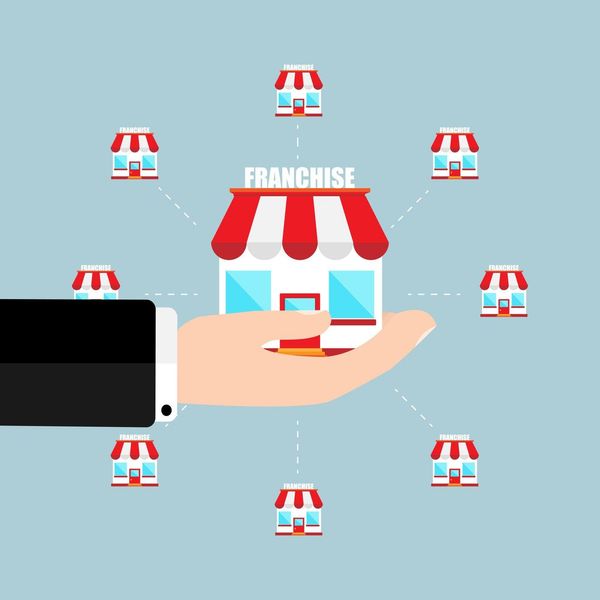
Pros and Cons of Using a Franchise Broker
Buying a franchise can be an overwhelming decision. With hundreds of concepts and thousands of franchises to choose from, how do you weed through all the options? Many prospective franchisees use the services of a franchise broker—sometimes called a franchise consultant.
“There are two types of people in the franchise business that are referred to as brokers,” says Jeff Elgin, CEO of FranChoice Inc., a network of franchise referral consultants. “One is a consultant that helps a person narrow down their search to a handful of franchise companies but who is not directly involved in the sale of any franchise. The second type is an independent salesperson directly involved in the sale of a specific franchise.”
If you are considering a broker, the first type is the one you’ll want to use. Independent brokers don’t charge you fees for their services; instead, they earn their money from commissions paid by the franchise companies when you buy a franchise. A broker will find out what your investment budget and interests are, and then suggest franchise companies that might be a good fit.
The pros of using a franchise broker
What are the pros and cons of using a broker? On the “pro” side, a good broker can save you lots of hassle. With millions of pages of data about franchises available online, there’s almost too much information to deal with. “A good consultant can save the prospective franchisee a lot of time and effort chasing down opportunities that don’t match with what they want to accomplish through franchise ownership,” says Elgin.
Beyond weeding through information faster, brokers also help you assess the alternatives. “Brokers are focused on matching you with the right concept, [not] just selling you a franchise,” says Jania Bailey, president and COO of franchise consulting firm FranNet. “Using a broker allows you to quickly determine the three or four concepts that are the best fit for your budget and goals.”
In addition to saving time, brokers can also save you money. First, the broker’s services are free. Second, “They can also help the prospective franchisee avoid making an expensive mistake by picking a franchise based solely on the product or service,” says Elgin, who adds that many franchisees fail to consider “the key characteristics of the franchisee role—the most common reason new franchisees end up being unhappy about their selection.”
Franchise brokers can be especially helpful if you’re completely new to the franchise industry—“if you do not even know what is available,” says Bailey. On the other end of the spectrum, says Elgin, if you’re an experienced existing franchise owner who simply wants to acquire more units of your existing chain or another you have already identified, a broker is not necessary.
More articles from AllBusiness.com:
- Are You Too Young to Buy a Franchise?
- Is It Complicated to Sell a Corporation?
- Can You Sell a Business Without a Broker?
- Selling Your Business: 5 Important Considerations
The "con" side of franchise brokers
On the “con” side, be aware that since brokers are paid by franchisors when a sale is made, they have a financial incentive to sell you a franchise. Some brokers unduly swayed by that fee may recommend only the most expensive options or fail to consider your best interests.
“There are a ton of ‘drive-by’ consultants in the marketplace who purport to provide the same service as professional consultants but who in fact do no such thing,” warns Elgin.“Make sure [you] are dealing with legitimate professionals by checking biographical data, track records and references. The reputable broker networks all have a complete list of their consultants, along with professional bios, on their website. None of the ‘drive-bys’ [do].”
What makes a good franchise broker?
What else should you look for in a franchise broker? Bailey says a good broker will offer “no-pressure guidance and consulting, a detailed process for evaluating franchise opportunities, and a referral network to help you in the process.” That may include franchise attorneys, accountants and financing sources.
“Does the broker take time to get to know you and your goals? Does the broker seem genuinely concerned with what is best for you?” Bailey asks. “If you feel pressured to buy or if the broker strongly pushes one franchisor, run!”
In addition to checking the broker’s credentials, it’s a good idea to work with someone in your local area. Notes Bailey, “A broker outside your area may not know your market and what will work [there].”
Be aware that franchise brokers do not represent the entire universe of franchise companies; they may represent 100 or so. If the broker doesn’t represent a company you’re interested in, contact others until you find one who does. Unlike a real estate broker, you’re not “locked in” to working only with one franchise consultant.
Importance of conducting your own franchise research
No matter how good your franchise broker is, don’t rely solely on the information he or she provides. As with any other big purchase, you need to do your own due diligence—having your attorney and accountant go over the franchisor’s Franchise Disclosure Document (FDD), verifying earnings claims, talking to current and former franchisees, investigating the franchisor’s track record—to make sure the franchise company is truly right for you.
RELATED: Want to Start a Business? Maybe You Should Buy a Franchise



